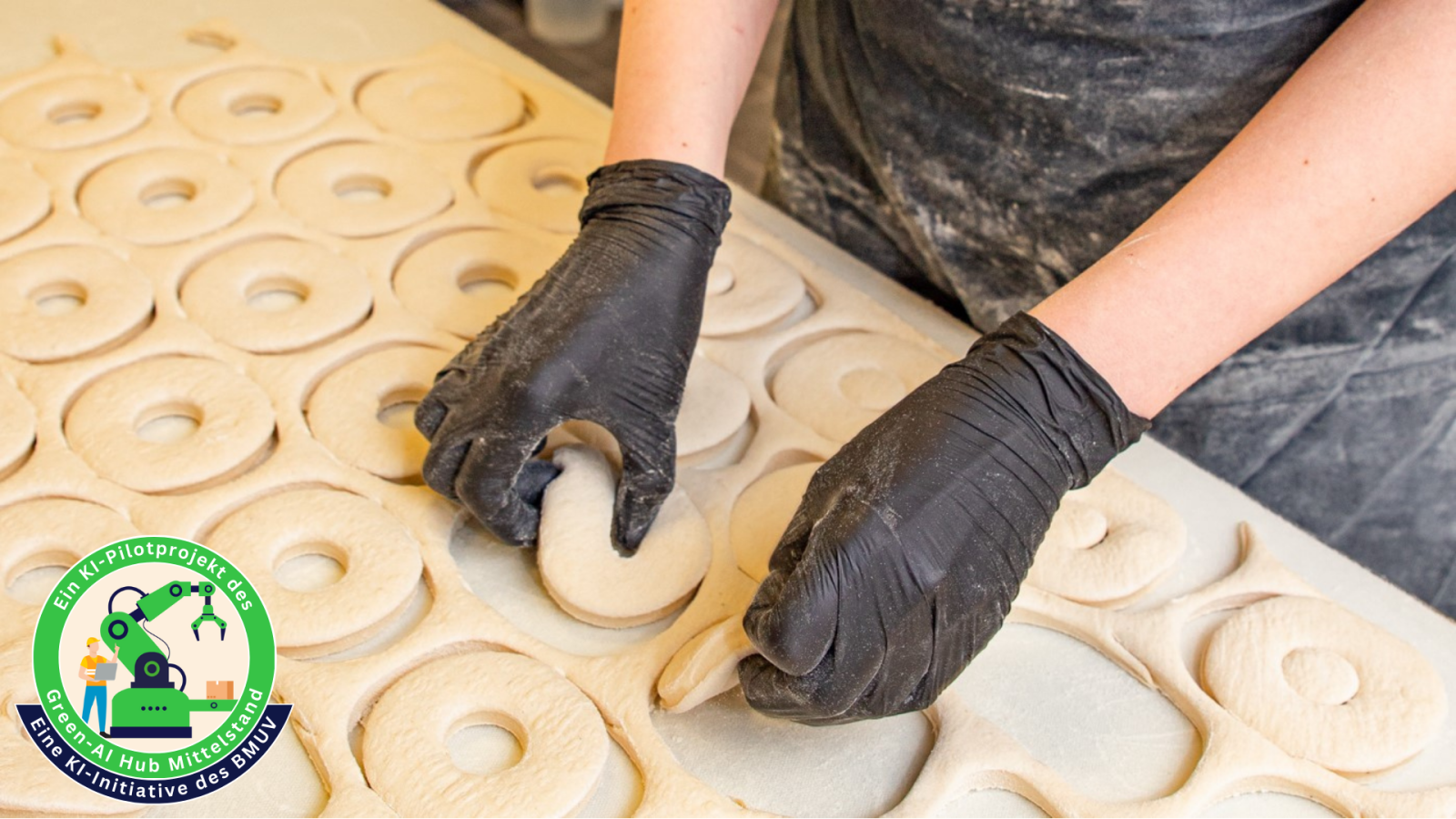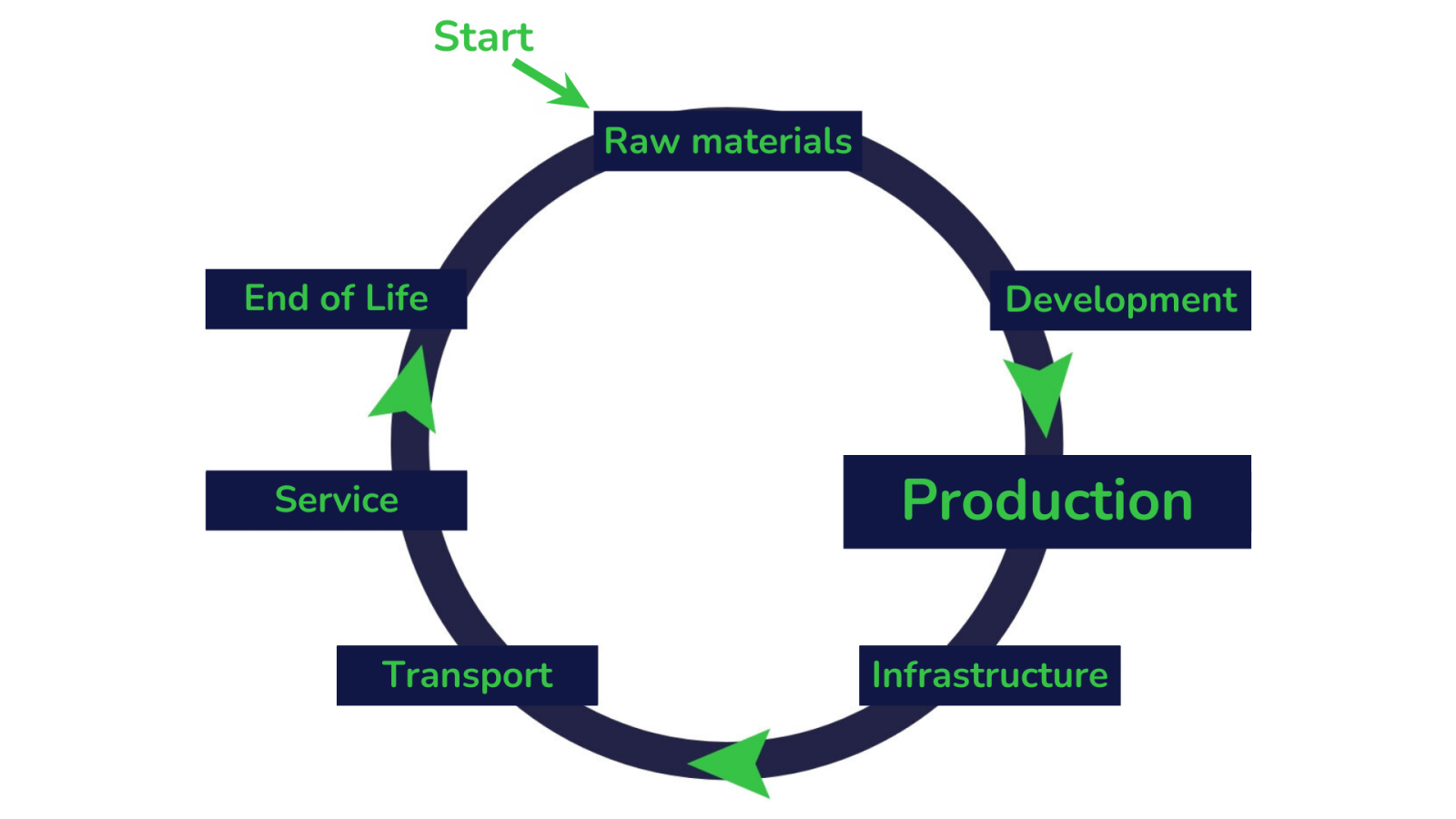AI-based forecasts for food production
Brammibal‘s Donuts, a pastry manufacturer from Berlin, and Foodtracks, a software provider for bakeries and organic supermarkets from Münster, are planning to use an AI solution to reduce food waste and protect the environment. To this end, the Green-AI Hub Mittelstand’s AI pilot project is developing forecasting algorithms that can predict the daily requirements of baked goods.

Software development and baking craftsmanship
Brammibal's Donuts, known for its vegan pastries, especially donuts, was founded in 2015 and operates more than 10 retail locations in Berlin and Hamburg. The vegan donuts are freshly handmade every morning in the company's own bakery. As the donuts do not contain any preservatives, they are more perishable and should ideally be eaten on the same day. The AI pilot project is being implemented together with Foodtracks. Foodtracks develops software that enables bakeries to make daily recommendations to optimize quantity planning. Founded in 2017, the company services over 70 bakeries and organic supermarkets throughout Germany; in total, the company serves around 2 800 separate retail locations.
The challenge: forecasting demand
Due to the short shelf life of many baked goods, an average of almost 36% of the goods produced in the bakery industry end up as food waste. For efficient and sustainable production, it is therefore necessary to predict the quantities required for local demand as accurately as possible. However, the demand for baked goods varies greatly and is influenced by time and local factors, such as the day of the week or the location of the branch. In addition, the bakery products offered and the needs of customers differ from store to store. This makes it difficult to predict order quantities. Another challenge is that the regional store managers who are responsible for the orders must trust the AI models and their predictions. If they adjust the order quantities retrospectively, this can lead to over-ordering and to food waste in the long term.
Sustainable business with the help of AI
Foodtracks already uses AI models that predict the optimal quantity of baked goods and help with decisions on production quantities. The models enable intelligent daily volume planning and help bakeries operate more sustainably. Brammibal's Donuts currently uses similar AI techniques for its own internal order processing.
The new AI pilot project with the Green-AI Hub Mittelstand aims to improve the AI models of SMEs. The starting point for this is the AI models of the individual branches: the AI models are to be further optimized using external data and new deep learning techniques.
In addition to the model improvements, the new AI technologies are to be combined with new intelligent design interfaces. This should increase store managers' confidence and understanding of the AI models when they place their daily orders. The AI models are being developed together with experts from the German Research Center for Artificial Intelligence (DFKI).
Reducing the environmental impact by reducing food waste
Bread is a staple food and yet one of the most wasted foods. These losses have a high environmental impact that can be reduced through better forecasting and management of food orders.
Similarly, the accuracy of food ordering has a high economic impact. Over-ordering results in wasted labor and materials, while under-ordering can lead to early sell-outs, which can have a negative impact on customer satisfaction. Other problems of early sell-outs include retail stores closing early, forcing employees to end their working day early and potentially lose sales.
An optimized ordering system with simple design and more accurate predictions can help minimize the waste of bread, donuts and other baked goods and reduce the environmental and economic impact of waste. AI solutions developed for bakeries with limited data could also benefit other SMEs in different sectors.

Baked goods sector offers great potential for saving resources
In Germany, more than 18 million tons of food are thrown away every year. Almost 10 percent of this comes from the baked goods sector. This waste is equivalent to the consumption of 398 000 hectares of valuable farmland and the emission of 2 46 million tons of greenhouse gases (WWF, 2018).
At Brammibal's Donuts alone, 438 508 donuts were wasted last year, which corresponds to 17 percent of all donuts produced (2 58 million pieces). The aim is to reduce the number of donuts thrown away by more than 200 000, which is roughly equivalent to the consumption of organic and biological materials such as 5 500 kg of wheat flour, 4 000 kg of sugar, 1 000 liters of rapeseed oil, 222 kg of yeast, 200 kg of chocolate and 134 kg of almonds.
And even more than that: with the new AI solution developed in the AI pilot project, Foodtracks could reduce bakery waste in its customers' 2 800 stores by 3 500 tons within a year.
Presentation of the Green-AI Hub pilot project “AI-based forecasts for food production" - 10:14 min.
- Bram van Montfort, Brammibal's Donuts GmbH
- Tobias Pfaff, Foodtracks (Antegon GmbH)
- Aeneas Stankowski, German Research Center for Artificial Intelligence GmbH
Technology
AI capability: analysis, forecasting optimization
AI model: deep learning, time-series forecasting
Value creation
Phase: Produktion
Aim of AI: Forecasting the daily order quantity
Resource efficiency
Savings of 3 500 tons of food waste per year, which corresponds to a GHG reduction potential of 478 tons of CO2e
Savings of 200 000 donuts per year
